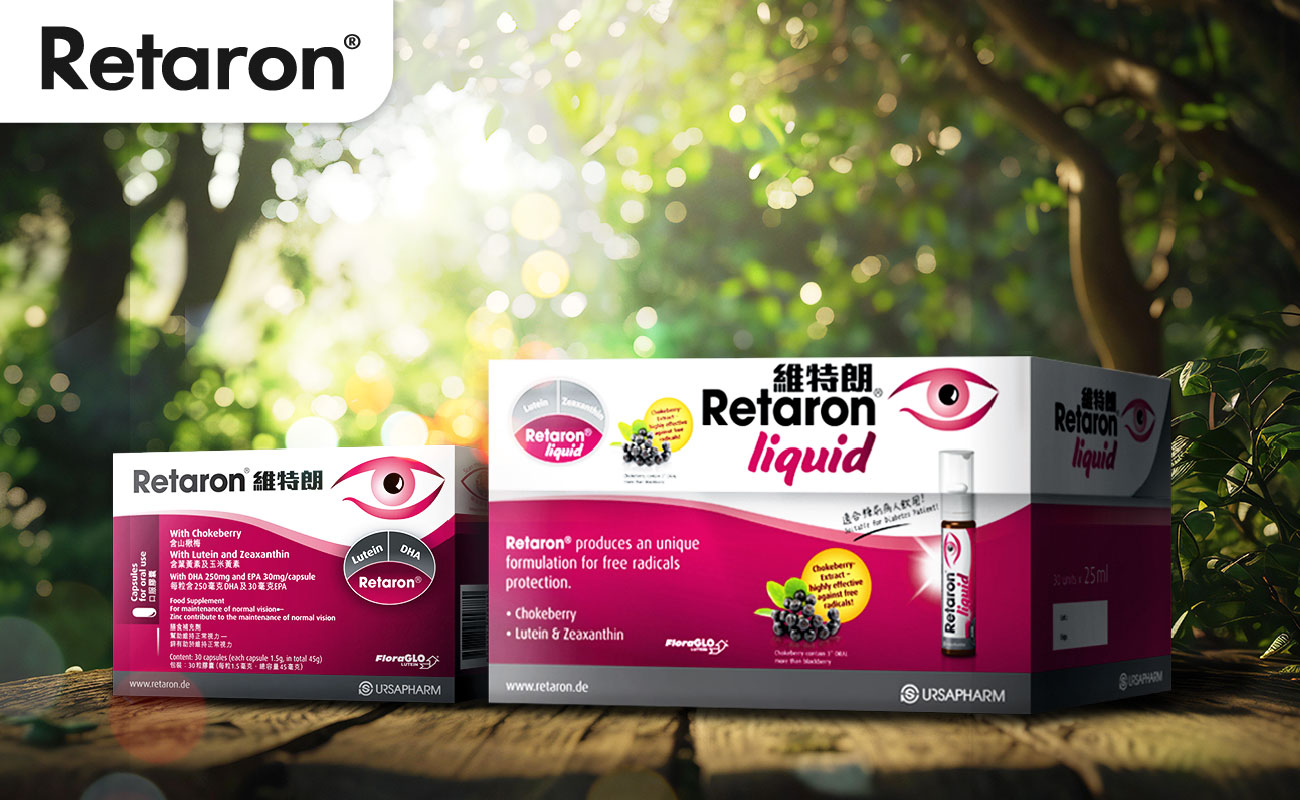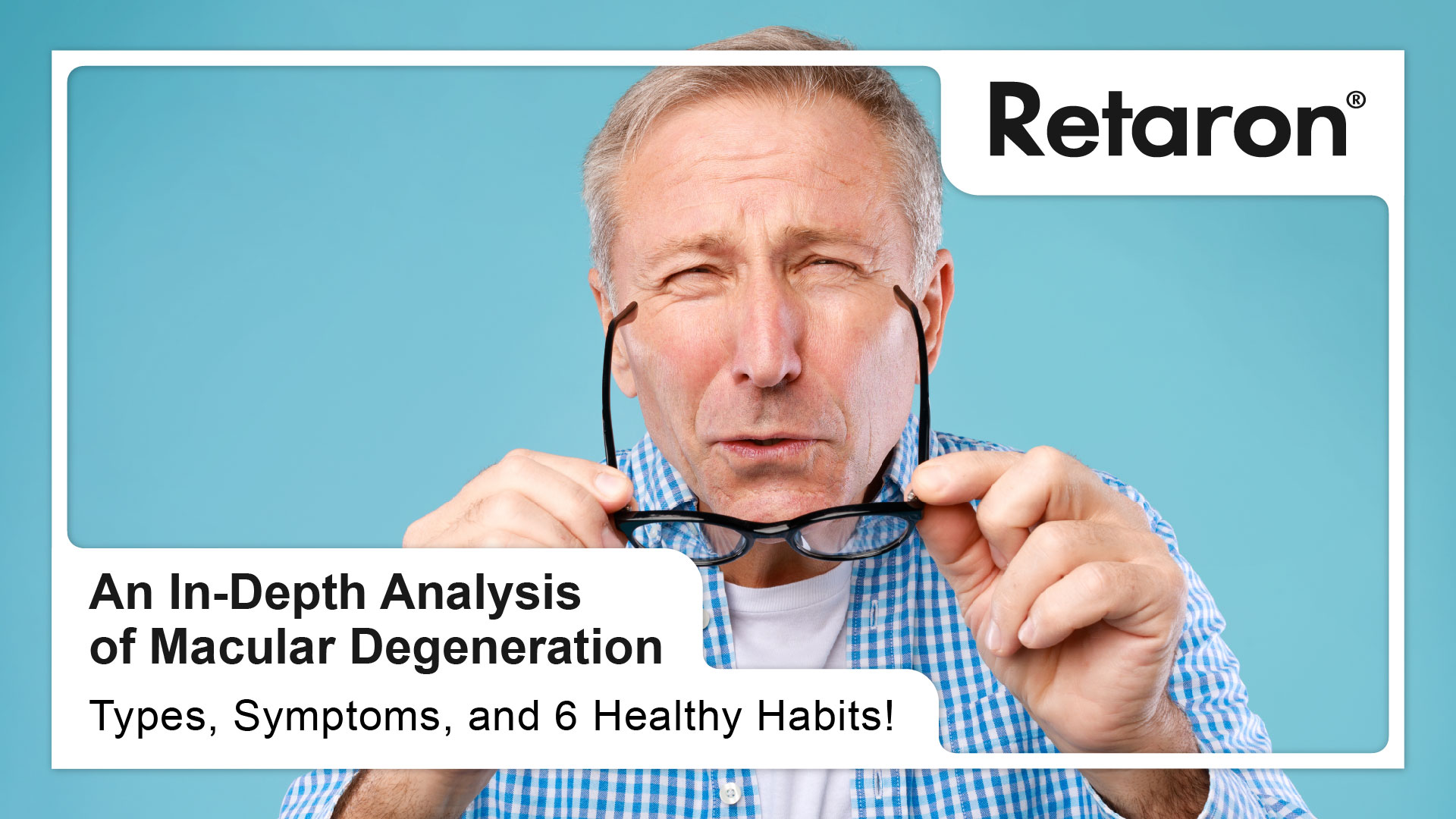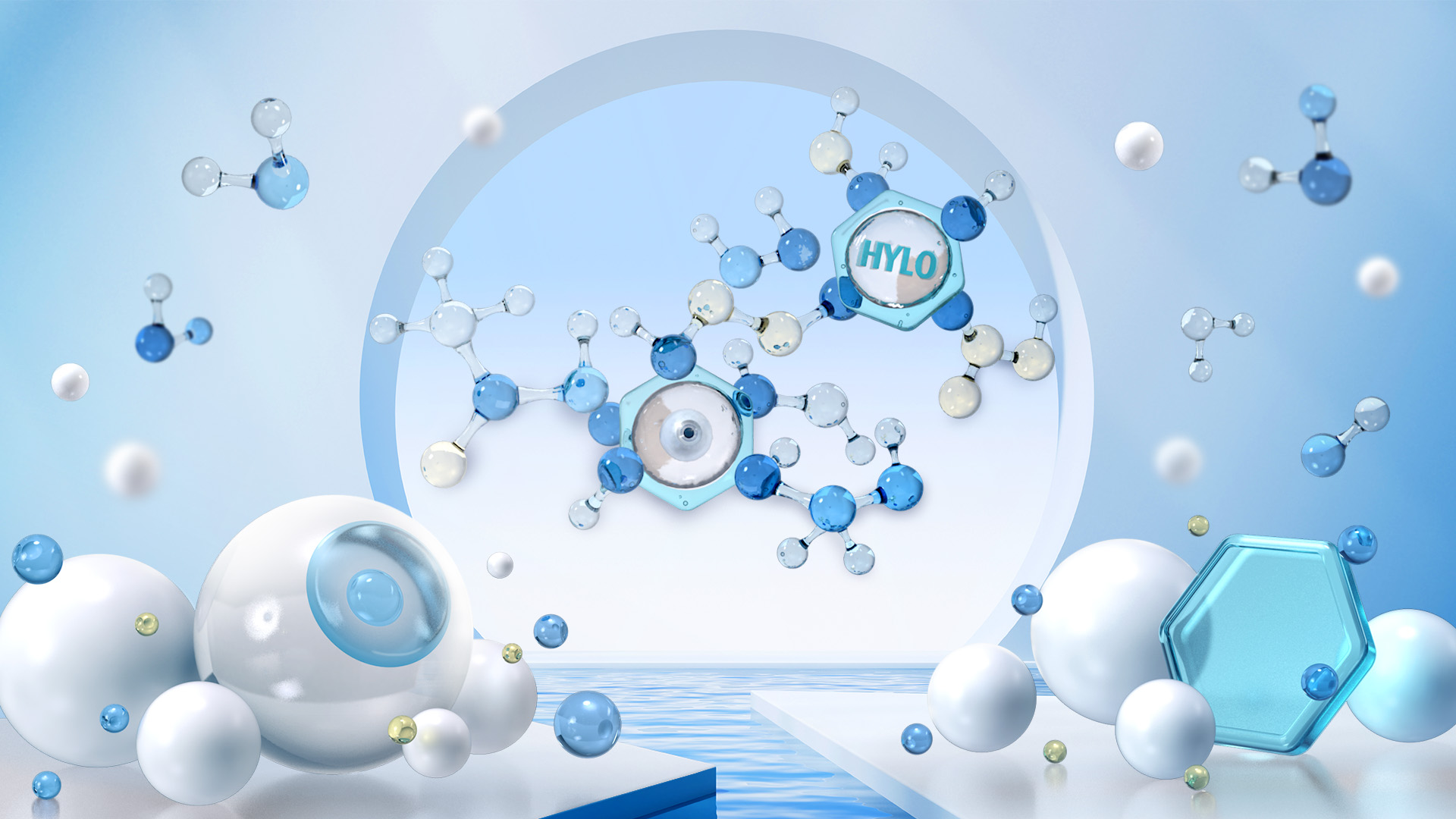What is Macular Degeneration?
Macular degeneration is a disease affecting the macular region of the eye. When abnormalities occur in this area, it can lead to the degeneration and damage of macular cells, causing vision deterioration. The macula is located at the retina’s center, where photoreceptor cells are most densely concentrated. It is primarily responsible for central vision and color recognition, allowing us to see objects clearly and distinguish colors.
Macular degeneration can be divided into two main types: Dry and Wet Macular Degeneration.
Dry Macular Degeneration
Dry Macular Degeneration is the most common type, accounting for about 90% of all cases. This condition is usually caused by the degeneration of the macular area, leading to the accumulation of yellow-white metabolic waste products known as drusen. These drusen interfere with the macula’s function and gradually cause the degeneration and atrophy of retinal cells, eventually leading to blurred vision and impaired central vision.
Since Dry Macular Degeneration has no noticeable symptoms in its early stages and the decline in vision is relatively slow, many patients may not notice it in time and miss the golden treatment period. If the condition worsens, dry macular degeneration may develop into wet macular degeneration, the leading cause of blindness.
Wet Macular Degeneration
Although Wet Macular Degeneration is less common, accounting for only 10% of all macular degeneration cases, its impact on vision is much more severe.
This type of degeneration is primarily caused by abnormal growth of blood vessels in the choroid. These new blood vessels are prone to leakage and bleeding. When fluid and blood accumulate in the macular area, they damage photoreceptor cells, leading to symptoms such as distorted vision, dark spots in the central visual field, rapid vision loss (often noticeable in one eye), and even permanent central vision loss (blindness).
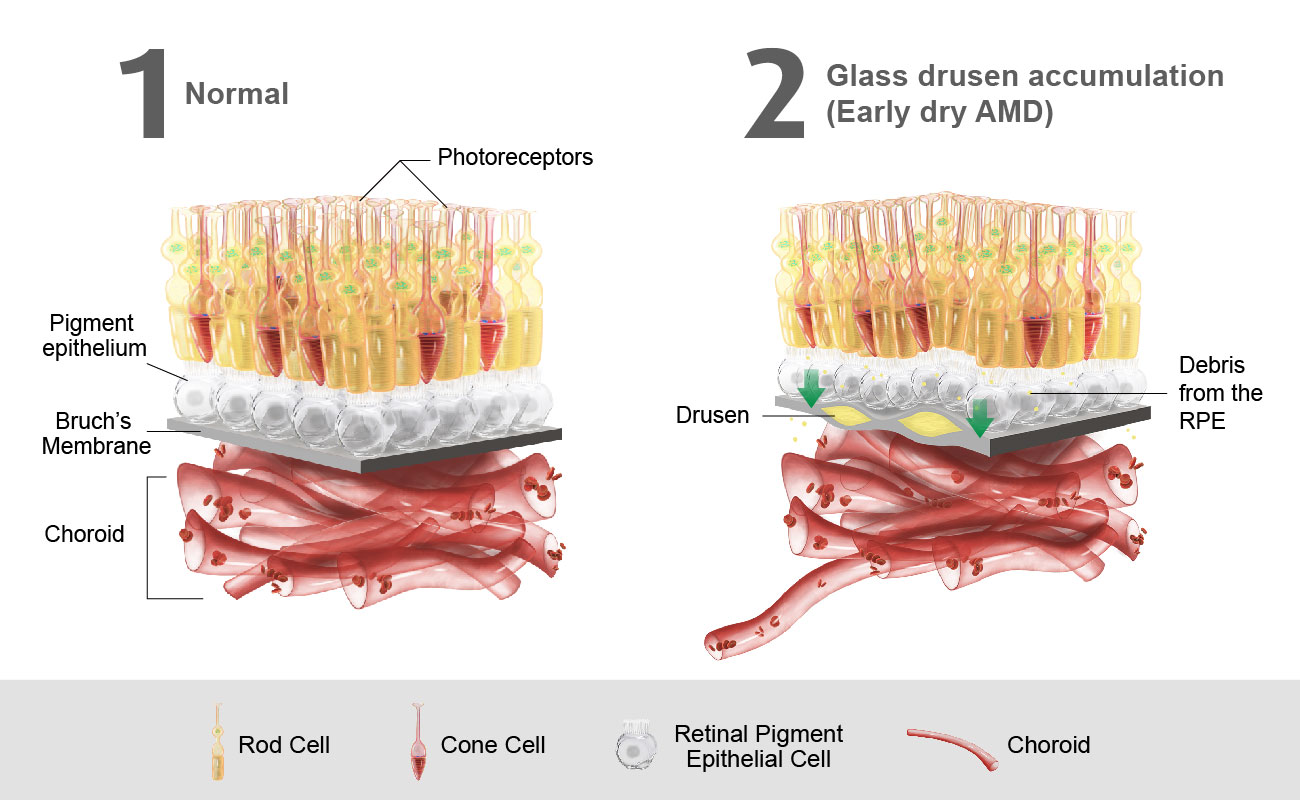
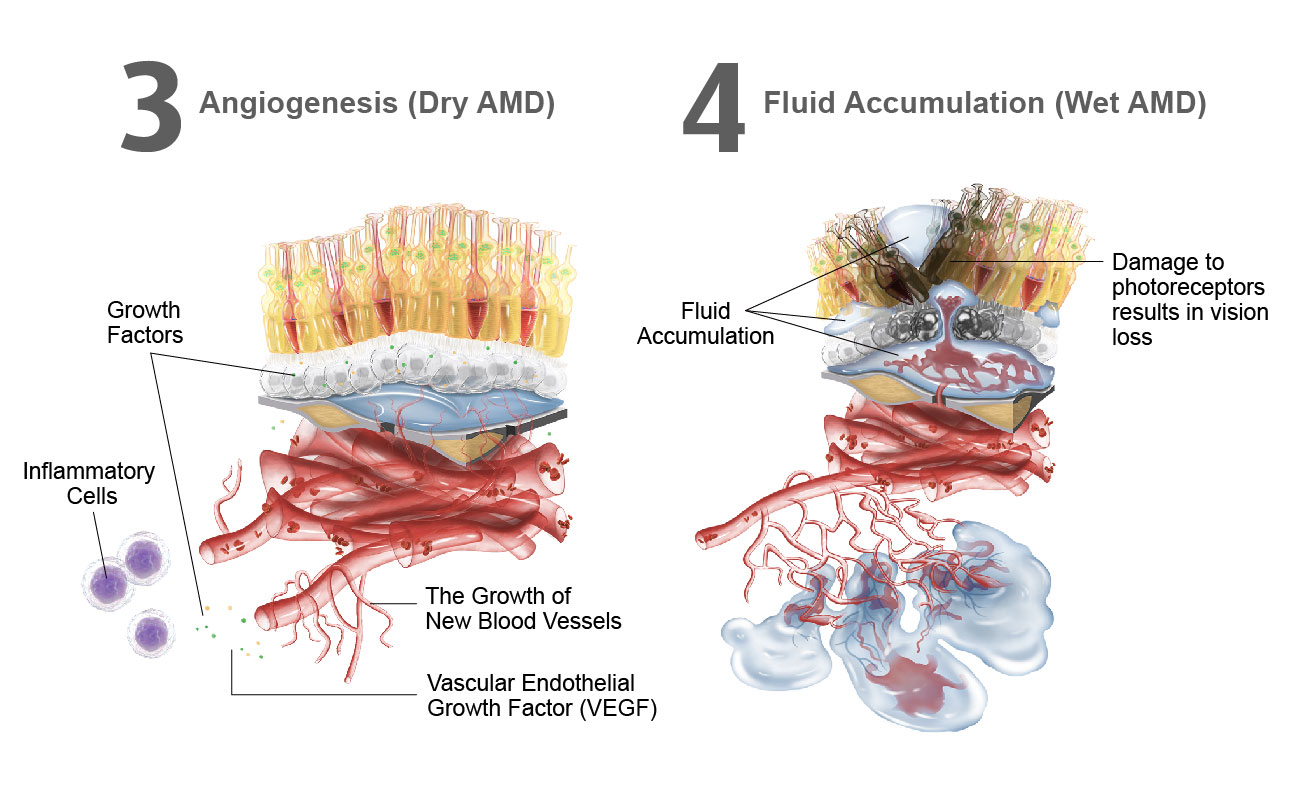
What Causes Macular Degeneration? What Are the Symptoms?
There are many causes of macular degeneration, with age being the most significant risk factor. As age increases, the risk of developing the condition also rises. Other possible contributing factors include smoking, family history, poor dietary habits, vitamin deficiency, prolonged sun exposure (especially to ultraviolet light), high myopia, the “three highs” (high saturated fat, high cholesterol, high blood pressure), and cardiovascular diseases.
Symptoms of macular degeneration include:
- Vision impairment may include blurred vision and gradual or sudden vision loss.
- Changes in central vision: The central visual field may darken or develop dark spots, such as circular, oval, or irregular-shaped spots.
- Distorted vision: Objects may appear distorted, with shapes that seem twisted or lines that are not straight.
- Color vision deficiency: Abnormal color perception may occur, including color distortion or reduced color sensitivity.
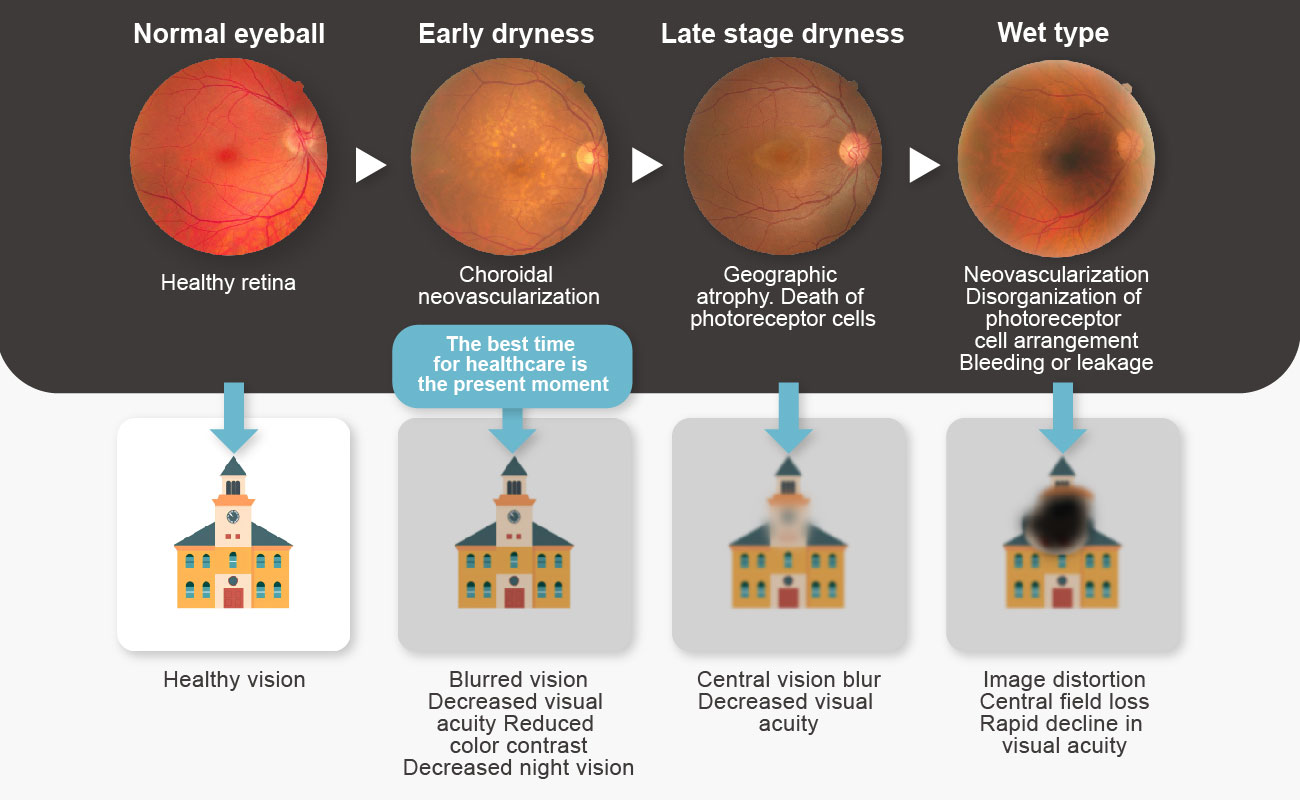
How to Prevent Macular Degeneration?
Understanding the causes of macular degeneration is essential, but knowing how to prevent it is even more crucial. Here are six methods:
Regular Eye Tests
The American Academy of Ophthalmology recommends having a comprehensive eye test at least once before age 40 and every 1 to 2 years after age 65. If you suddenly notice eye discomfort or other symptoms, please consult your doctor immediately.
Healthy Eating
Consume foods rich in lutein (such as spinach and pumpkin), anthocyanins (such as black currants and blueberries), zeaxanthin, vitamins C and E, Omega-3, zinc, and selenium. Reducing the intake of high-saturated fats and high-cholesterol foods can also help slow macular degeneration.

Smoking Cessation
The tar, nicotine, and other chemicals in tobacco can stimulate abnormal blood vessel growth in the retina, increasing the risk of macular degeneration. Research shows that smokers have a 2 to 3 times higher risk of developing macular degeneration than non-smokers, and the risk increases with the amount of smoking. Quitting smoking can reduce the risk, and if you have been smoke-free for over 20 years, your risk is comparable to that of a non-smoker.
Control the “Three Highs”
The “three highs”—high blood pressure, high cholesterol, and high blood sugars(diabetes)—can lead to microvascular damage, affecting the health of the macular area. Regular monitoring of blood pressure, cholesterol level, and blood sugar and appropriate measures to keep these indicators within a healthy range can help protect vision and maintain overall health.
Avoid Excessive Sun Exposure
Ultraviolet UVA rays in sunlight have strong penetrating power and can accelerate the aging of the retinal photoreceptor cells, potentially worsening macular degeneration. Therefore, it is advisable to avoid prolonged activities under strong sunlight or to wear sunglasses blocking ultraviolet rays outdoors.
Dietary Supplements
In addition to a balanced diet, dietary supplements can help replenish essential nutrients such as lutein, zeaxanthin, and vitamin C. Recent studies have shown that some antioxidants and zinc supplements may help slow the progression of Dry Macular Degeneration.
The Ursapharm has designed Retaron® capsules based on Age-Related Eye Disease Study.
Retaron® capsules contain a unique chokeberry formula with anthocyanin levels five times higher than wild blueberries and four times higher than cherries, helping to enhance eye metabolism and alleviate eye fatigue. Additionally, the formula includes other eye-protecting ingredients such as zinc, lutein, zeaxanthin, vitamins C and E, and selenium, all derived from natural food sources to achieve the best results.Retaron® capsules containing fish oil are ideal for patients who use electronic devices for extended periods or frequently experience eye discomfort.
